
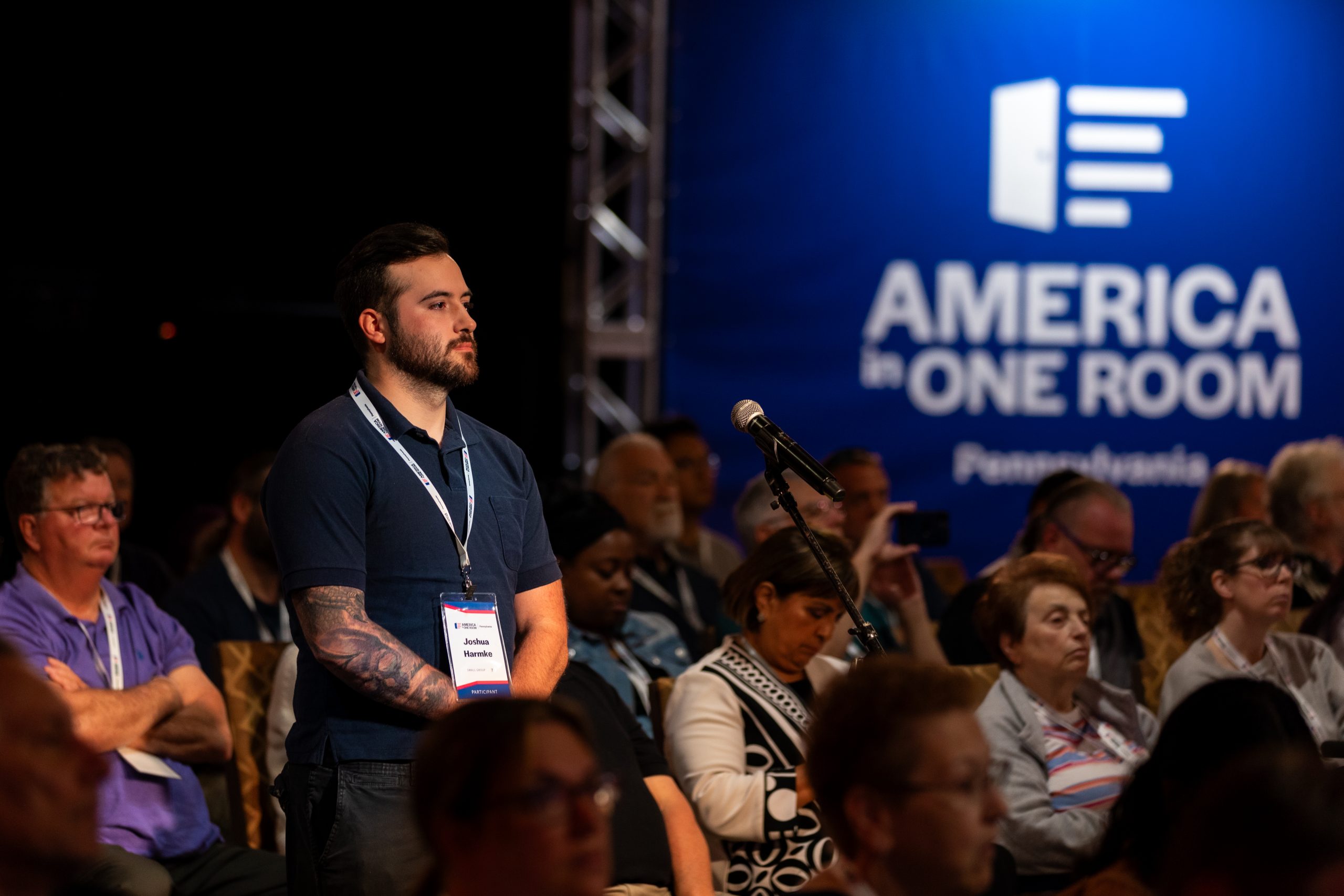
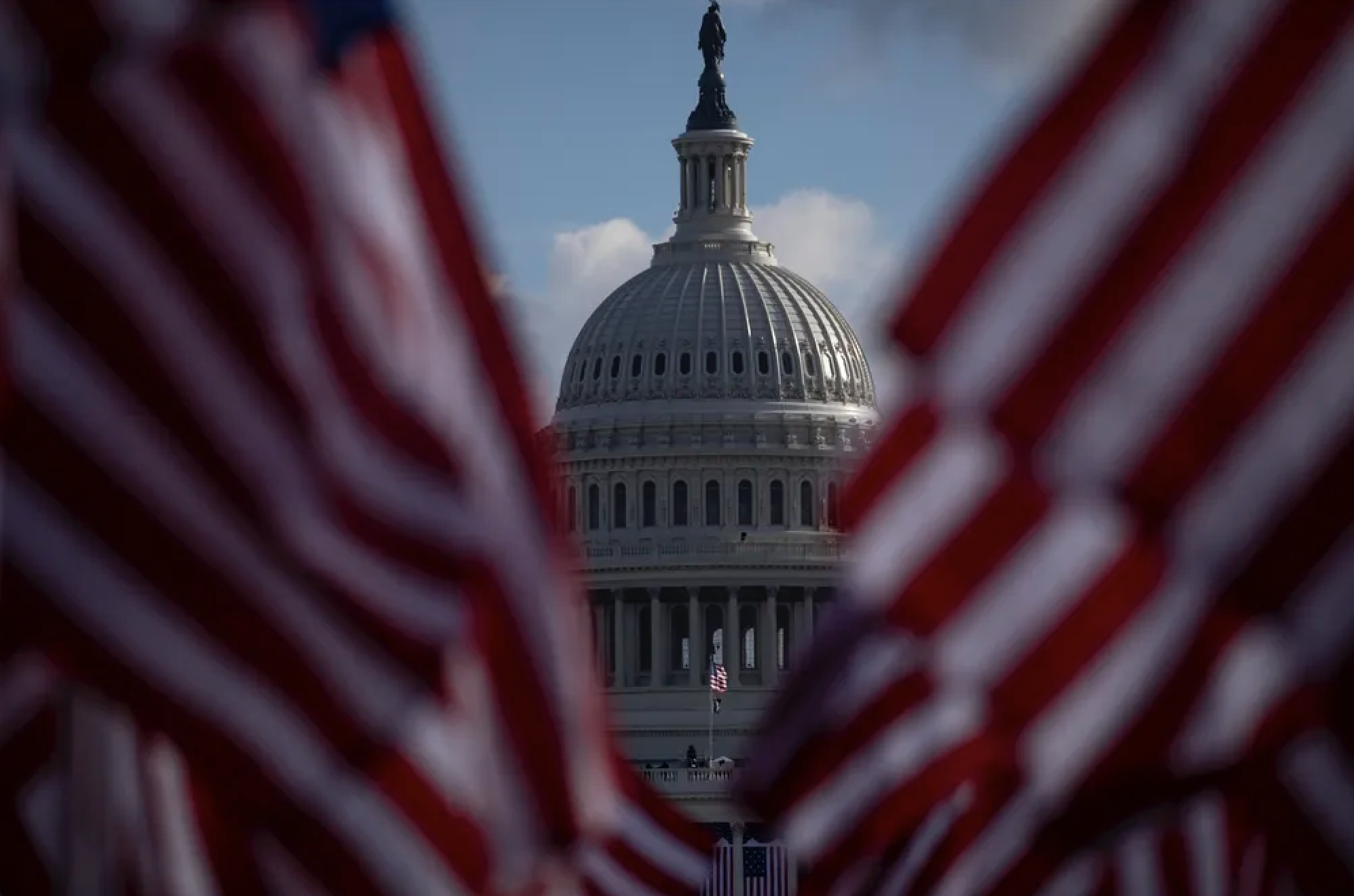
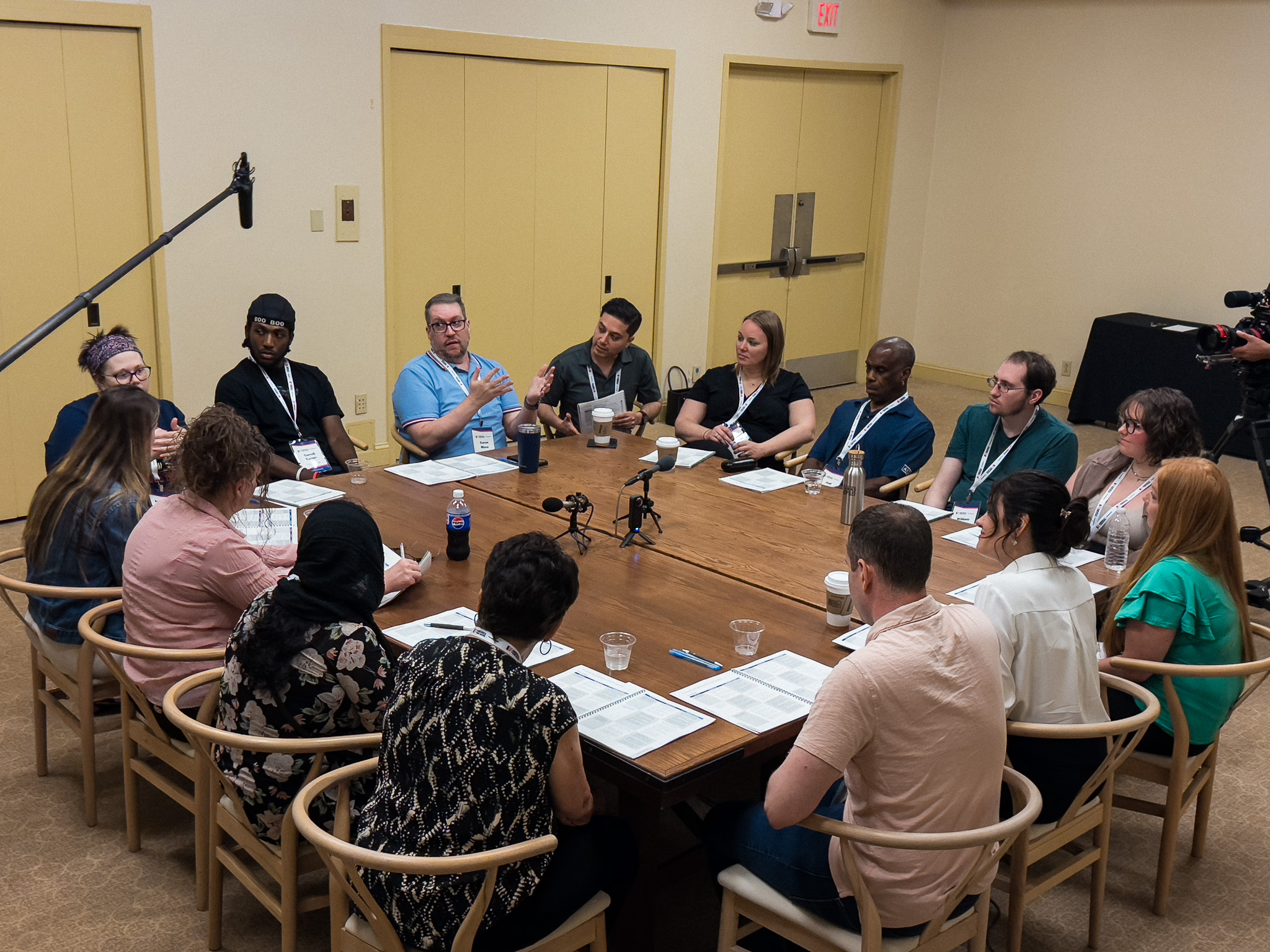
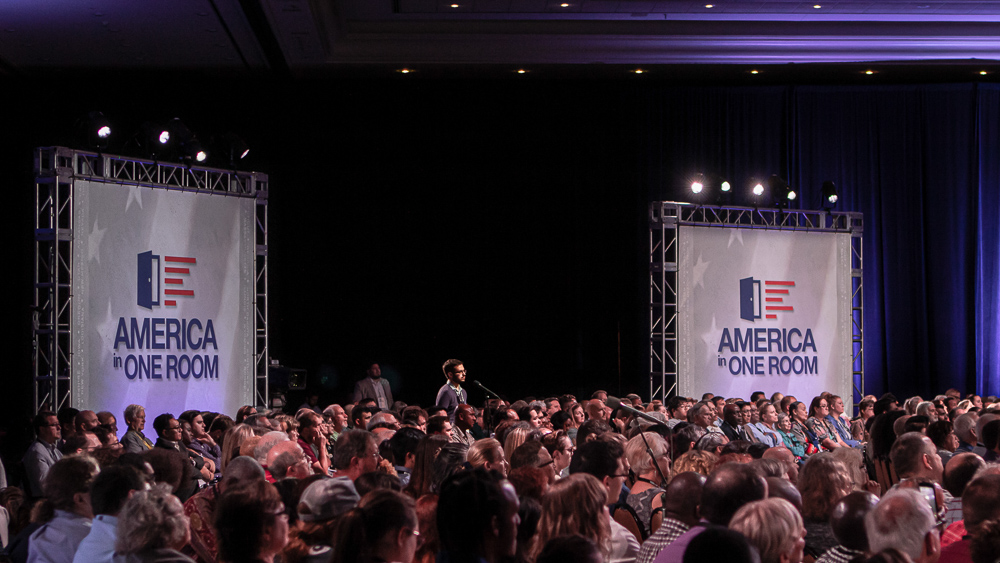
CONSTRUCTING A BRIDGE FROM DELIBERATION TO LEGISLATION
In June of 2025, Helena and its partners at Stanford’s Deliberative Democracy Lab brought America in One Room (A1R) to one of the country’s most important bellwether states.
Recruited by Public Opinion Strategies in collaboration with Sago, America in One Room: Pennsylvania (A1R: PA) convened a scientifically representative sample of 175 constituents to thoughtfully deliberate on complex policy challenges facing the state and the nation. Outside of the deliberative sessions, participants engaged directly with state leaders, including Governor Josh Shapiro, State Senator Joe Picozzi, and Speaker of the Pennsylvania House Joanna McClinton.
The results demonstrated significant bipartisan opinion shifts, increased faith in democracy, and renewed civic agency.

For the first time in A1R’s history, the event produced a direct bridge to legislative impact, with Speaker McClinton’s commitment to use the data produced to guide senate reconciliation of House Bill 1396.
At a time of deepening division and institutional mistrust, A1R offers as a powerful example of participatory democracy in practice and a functional model for leaders committed to infusing decision-making processes with greater transparency and accountability.
A proven model for democratic revitalization
A1R: PA is the fifth installment of Helena’s America in One Room series. Launched in 2019 as an innovative effort to capture the “will of the people” ahead of a critical presidential election, the original A1R drew significant media coverage—including a dedicated Sunday supplement in The New York Times—and earned praise from global leaders, including Presidents Barack Obama and Bill Clinton.
Since 2019, we’ve brought this process to a series of issue-specific online events, utilizing a proprietary AI-driven online platform developed by Stanford’s Deliberative Democracy Lab, and convened the first-ever representative national sample of first-time voters for a historic in-person event in Washington, D.C.

Rooted in Deliberative Polling®, a methodology pioneered by Helena Member Jim Fishkin, A1R provides a radically different understanding of public opinion compared to traditional surveys or polls. Instead of capturing surface-level responses or partisan talking points, it reveals considered perspectives that emerge when citizens engage deeply and respectfully with complex policy issues. Deployed over 150 times in more than 40 countries worldwide, Deliberative Polling has consistently resulted in reduced polarization, increased faith in democratic processes, and long-term civic engagement.
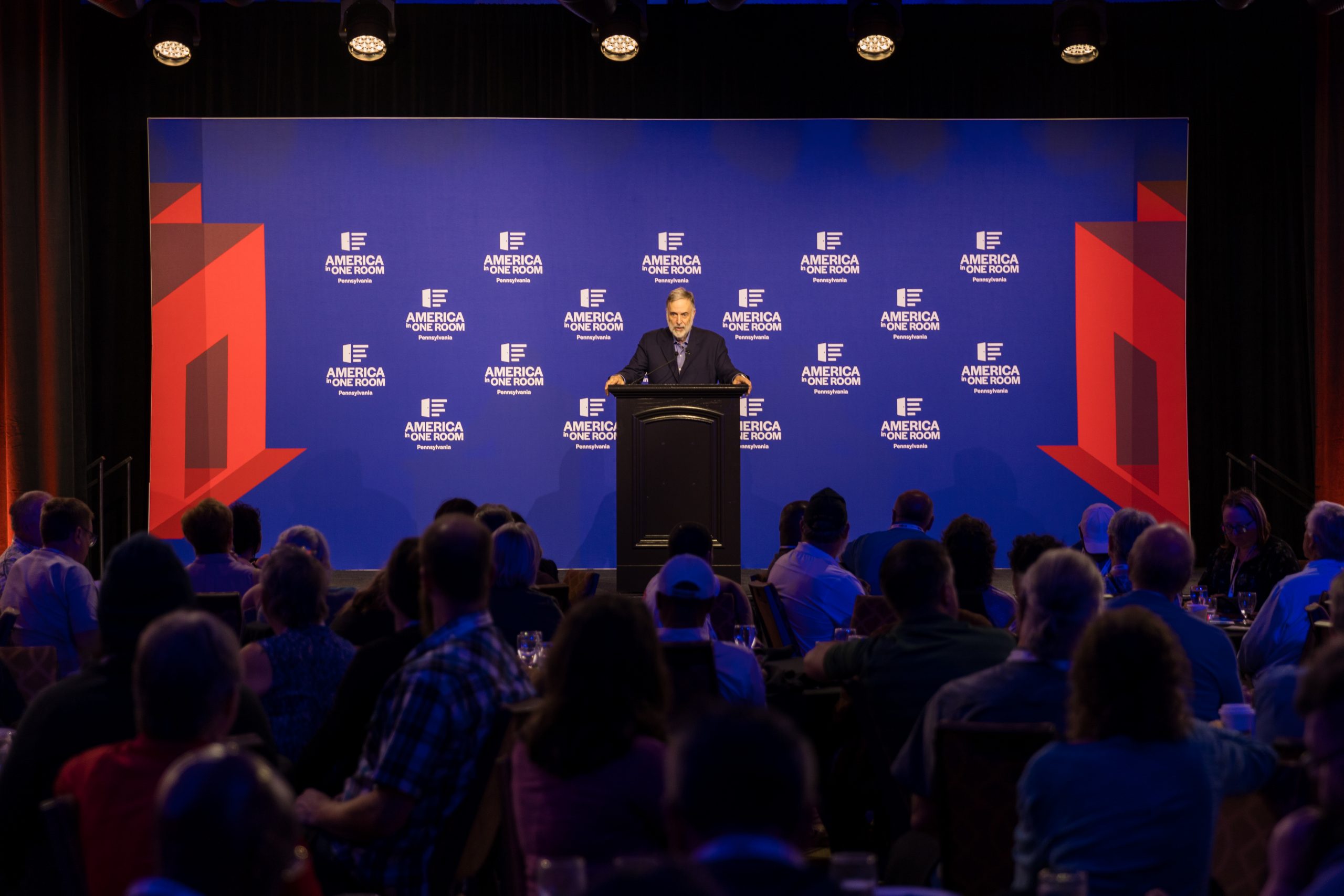
How it works:
- Representative Sampling: Two groups—an active deliberation group and a control group—are recruited to represent a demographic, socioeconomic, and ideological microcosm of the population.
- Pre-Survey: Both groups complete a baseline survey measuring initial opinions on key policy proposals.
- Briefing Materials: Following the pre-survey, the active group receives comprehensive, balanced briefing documents outlining arguments for and against each policy proposal, vetted by a bipartisan advisory council of experts.
- Structured Deliberation: Over multiple days, the active group participates in moderated small-group discussions designed to encourage meaningful dialogue, enabling participants to understand diverse viewpoints and appreciate policy complexities.
- Expert Access: Participants then engage directly with policymakers and subject-area experts through plenary Q&A sessions, deepening their understanding and grounding their deliberations in practical considerations.
- Exit Survey and Analysis: Both groups retake the initial survey upon completion of deliberations. A comparative analysis then measures shifts in opinion, highlighting changes and areas of emerging consensus.
A Microcosm of the Nation
Pennsylvania offered the perfect laboratory for democratic renewal. A key swing state that encompasses urban centers, vast rural areas, Rust Belt manufacturing towns, and growing suburbs, this diversity is reflected in the political leanings and voting behaviors of its residents – which embody the deepening polarization that characterizes American politics.

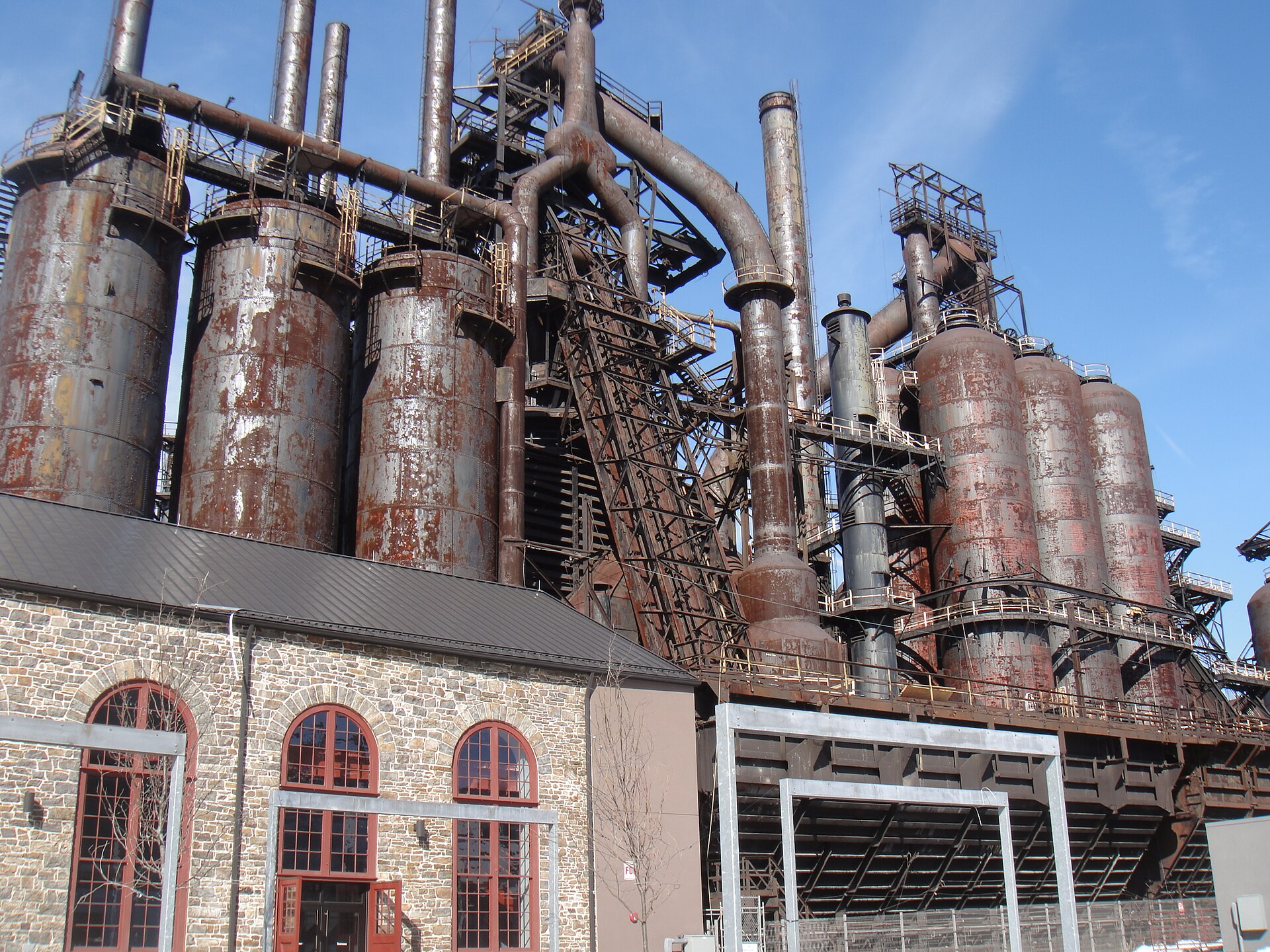

Just months into President Trump’s second term, with political tensions running high, A1R: Pennsylvania would provide the first rigorous measurement of where voters actually stood on the issues when given the chance to move beyond soundbites and slogans.
The discussions centered five key policy areas:
- Opportunity and Responsibility: Economic growth, civic participation, and government effectiveness.
- Learning and Work: Education, skills training, and workforce development.
- Health and Wellbeing: Healthcare access, mental health, and prevention strategies.
- Community and Home: Affordable housing, community resilience, and urban/rural development.
- Justice and Public Trust: Safety, fairness, and modern approaches to law and order.
- Common Ground: National purpose, global leadership, and bridging divides.
Over the course of 3 days, participants brought their lived experiences to discussions with diverse fellow Pennsylvanians. In small groups, they formulated questions for a bipartisan slate of political leaders that included Governor Josh Shapiro, Senator Joe Picozzi, and Speaker Joanna McClinton.
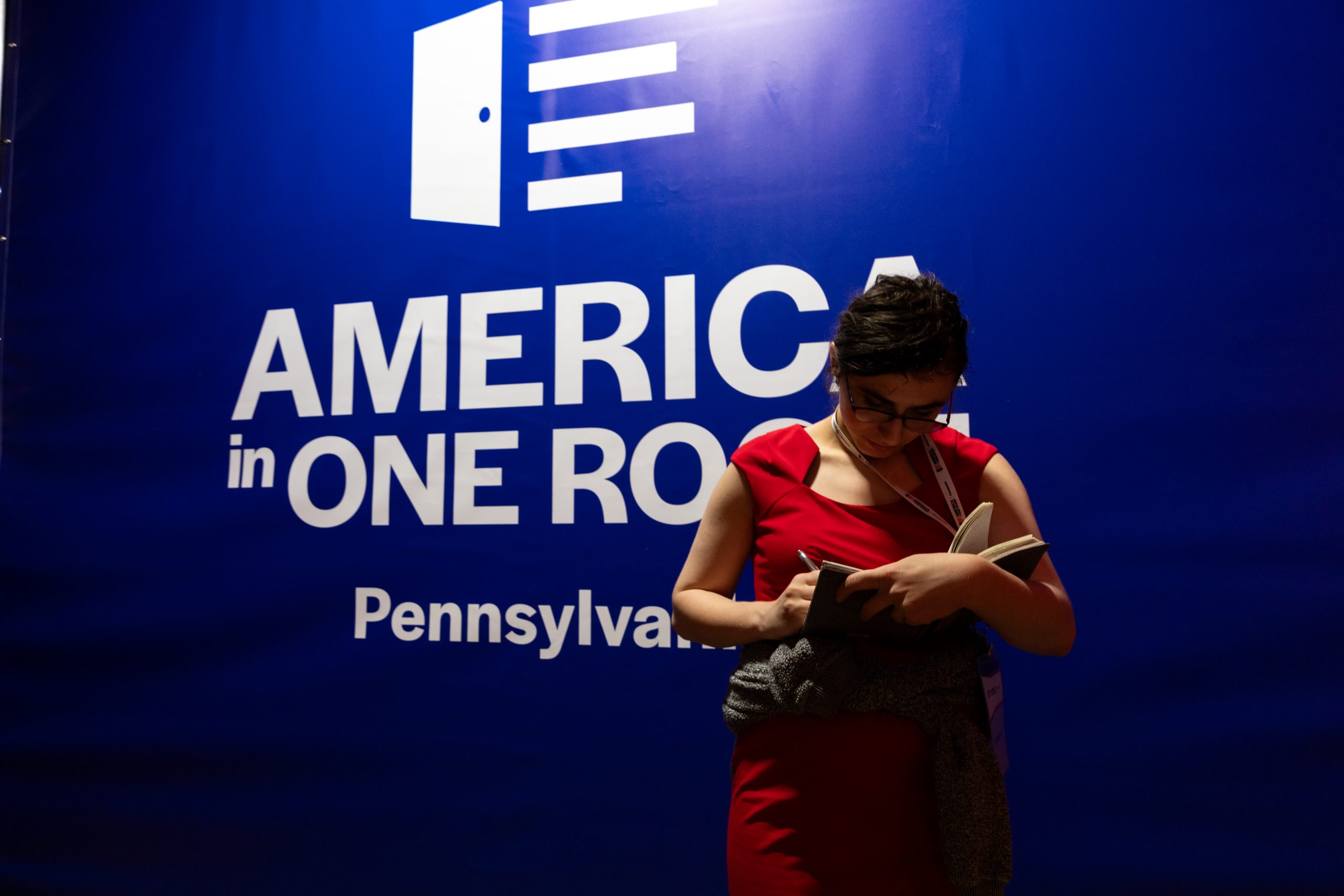
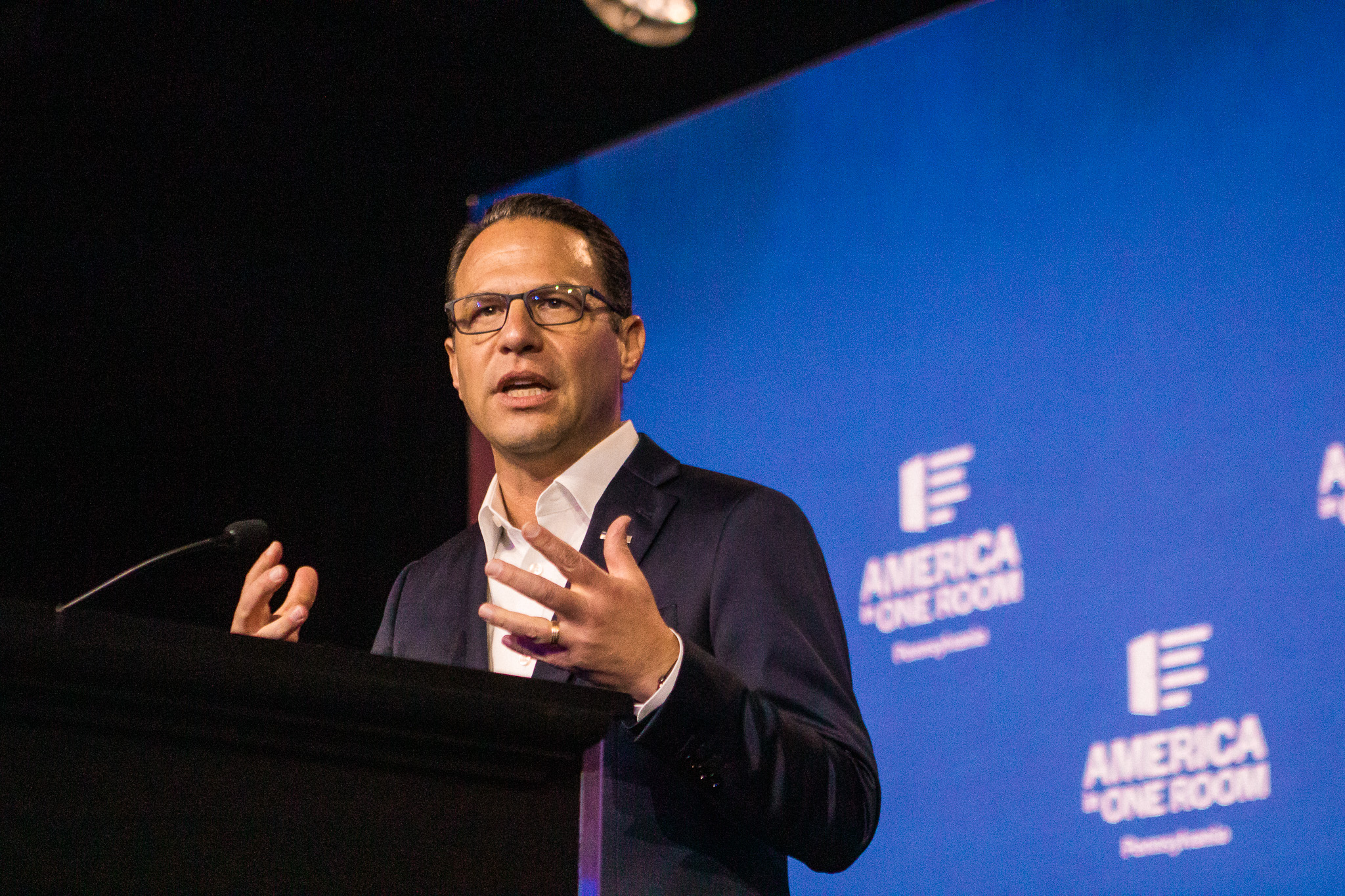
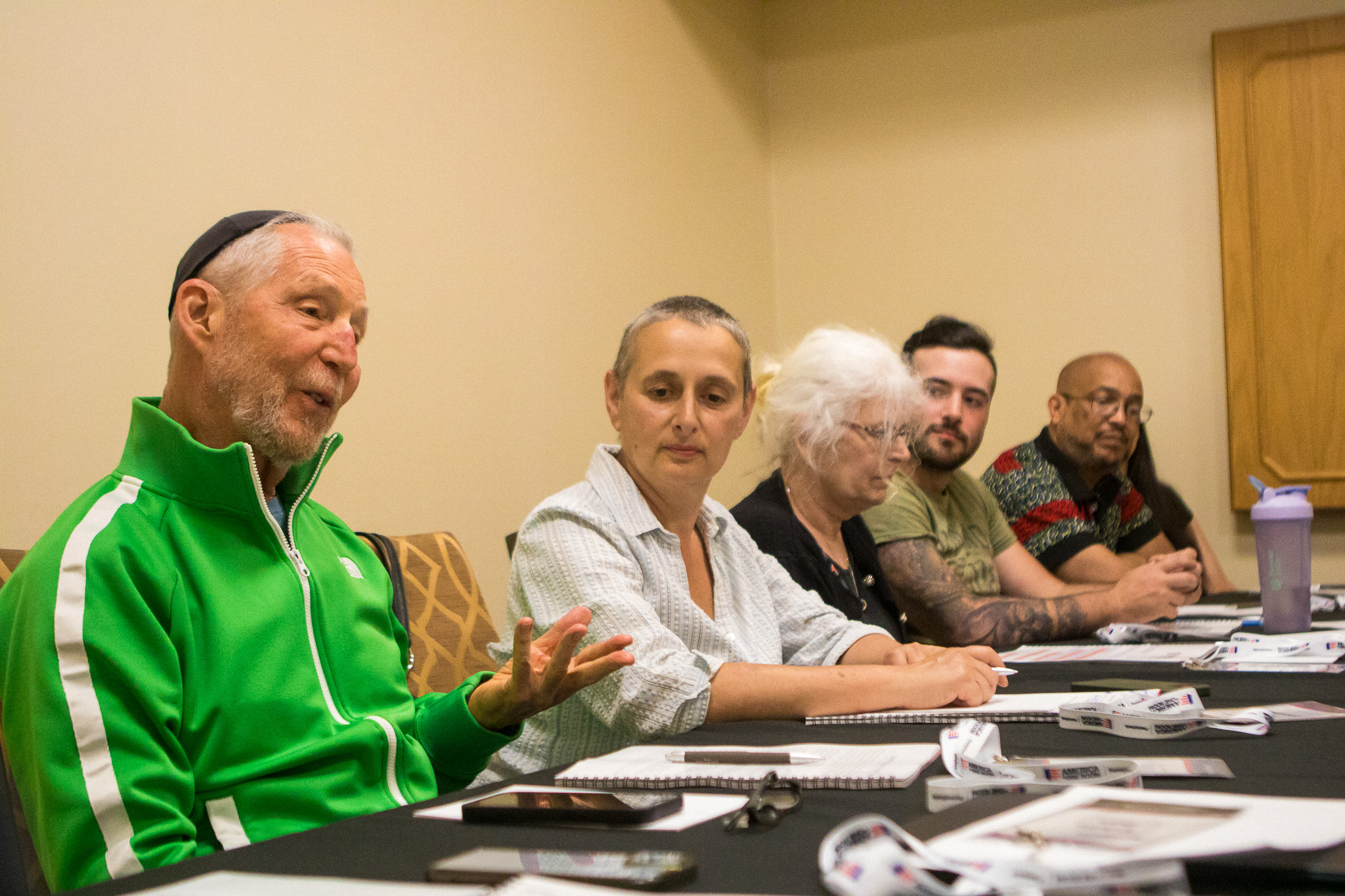
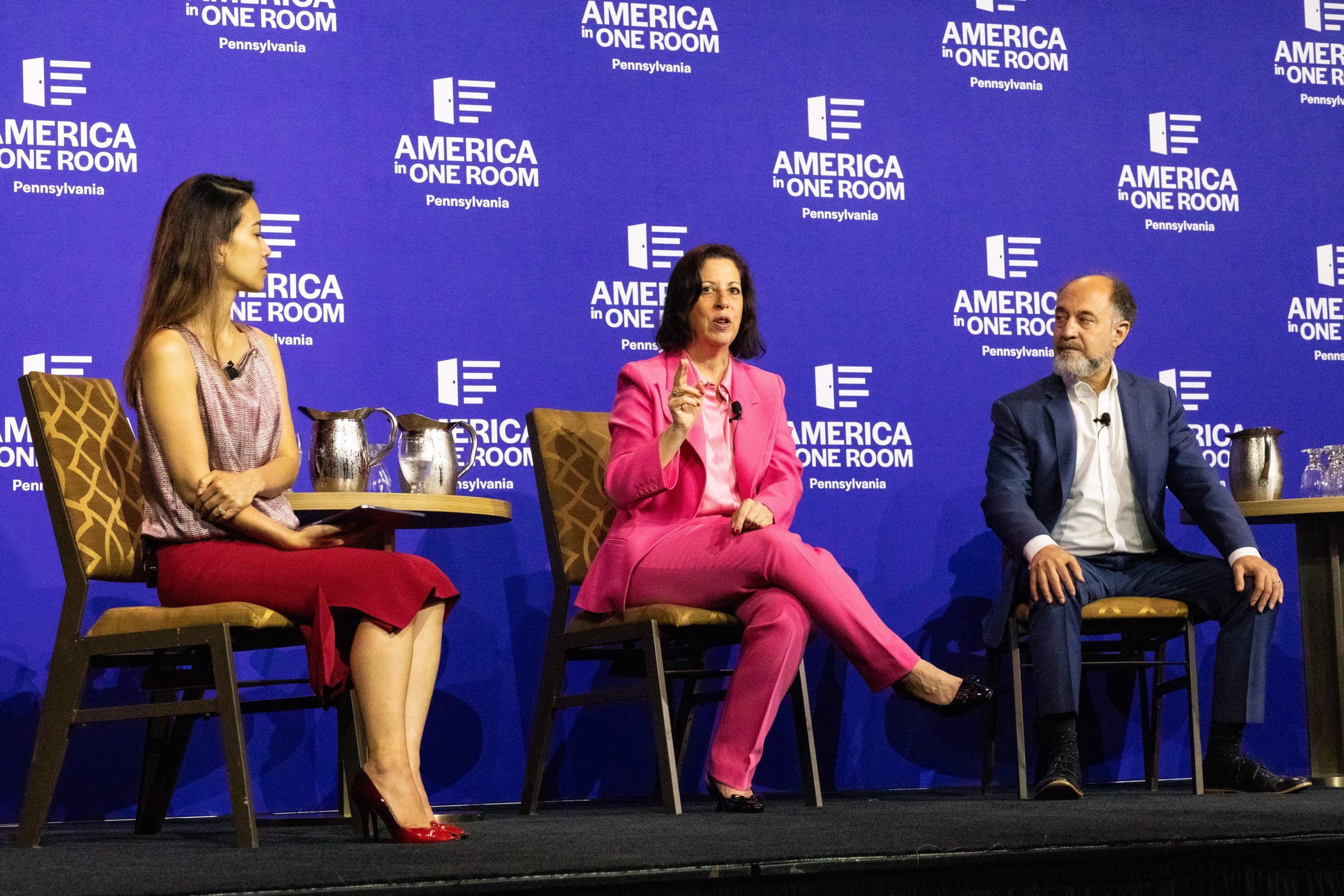
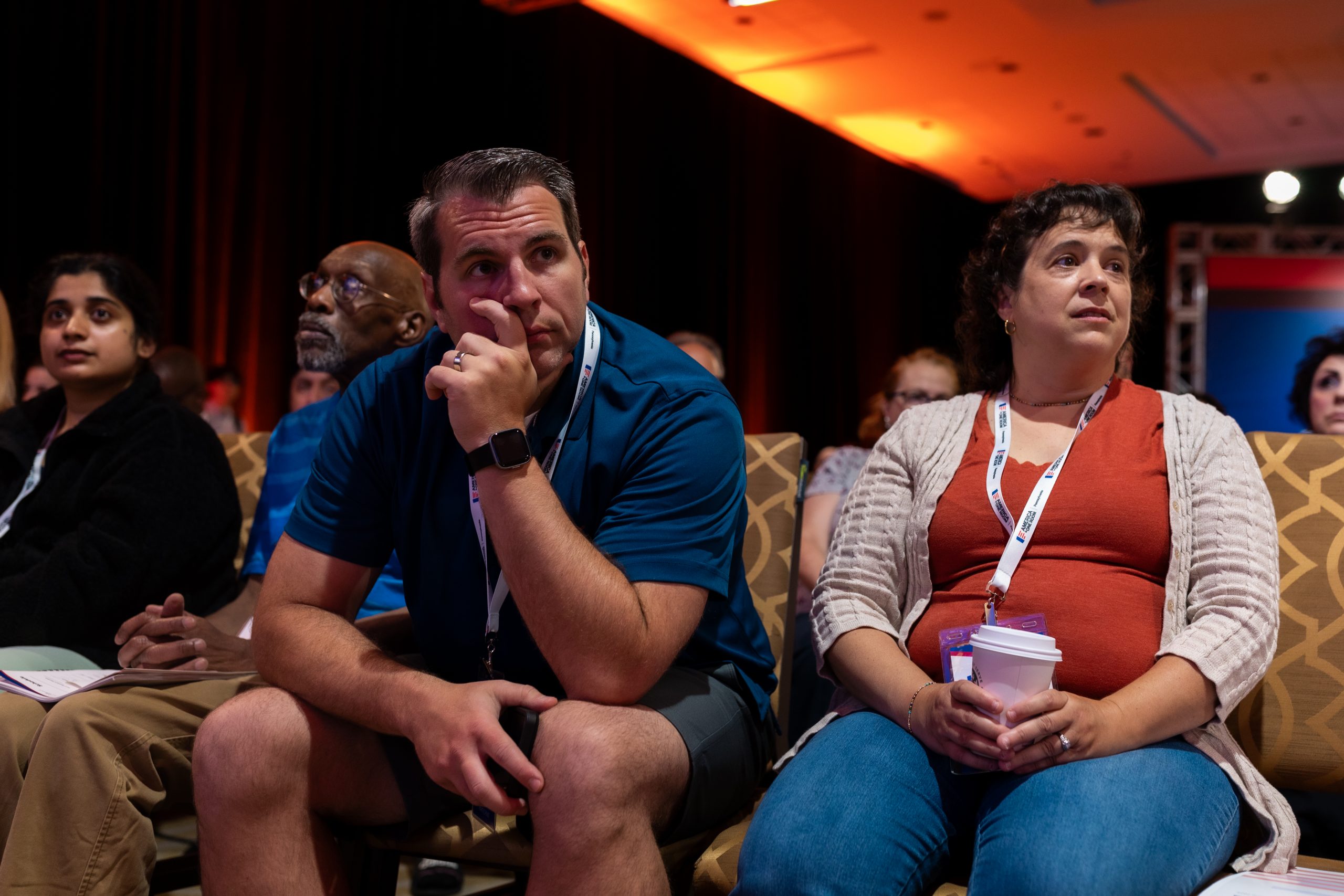
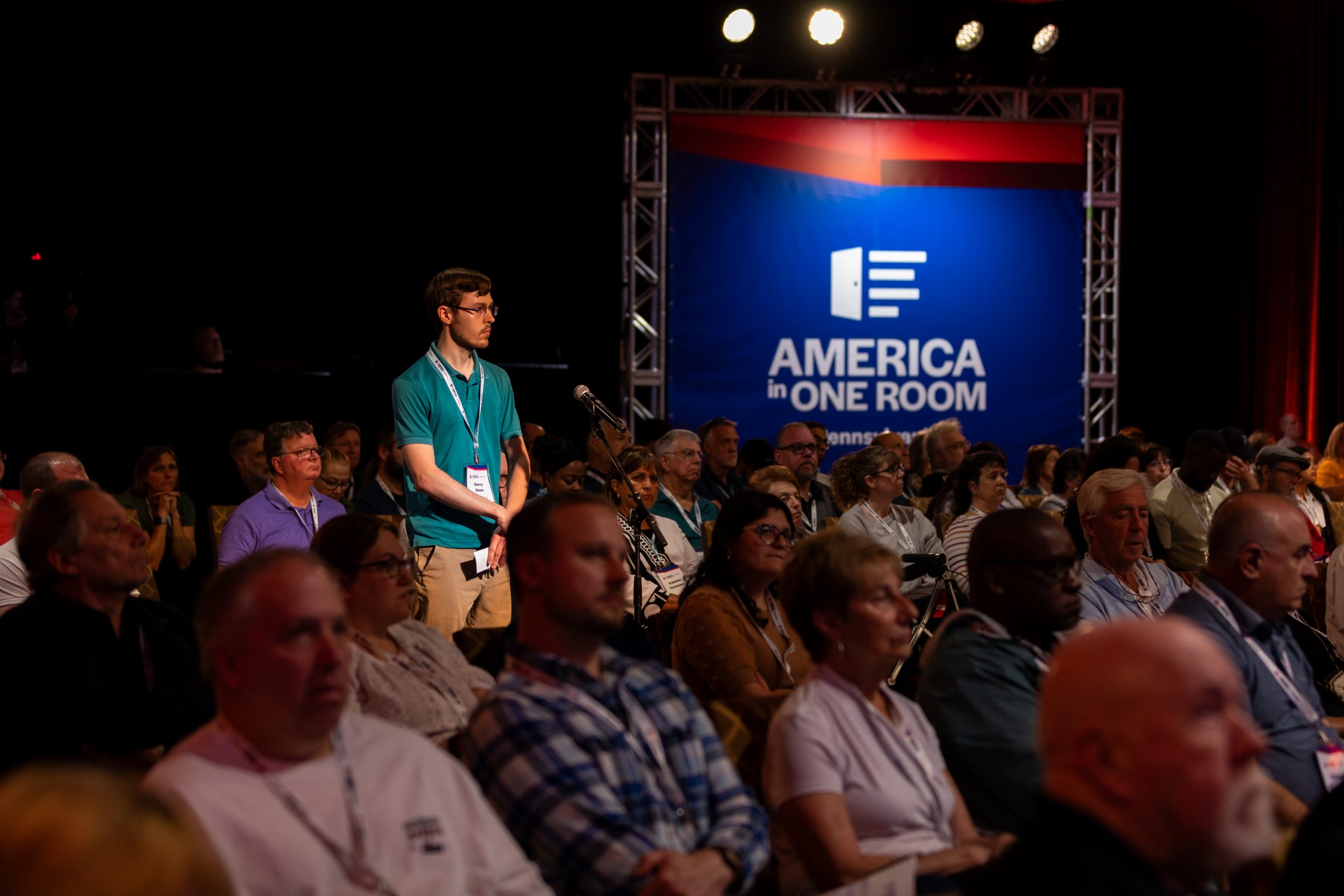

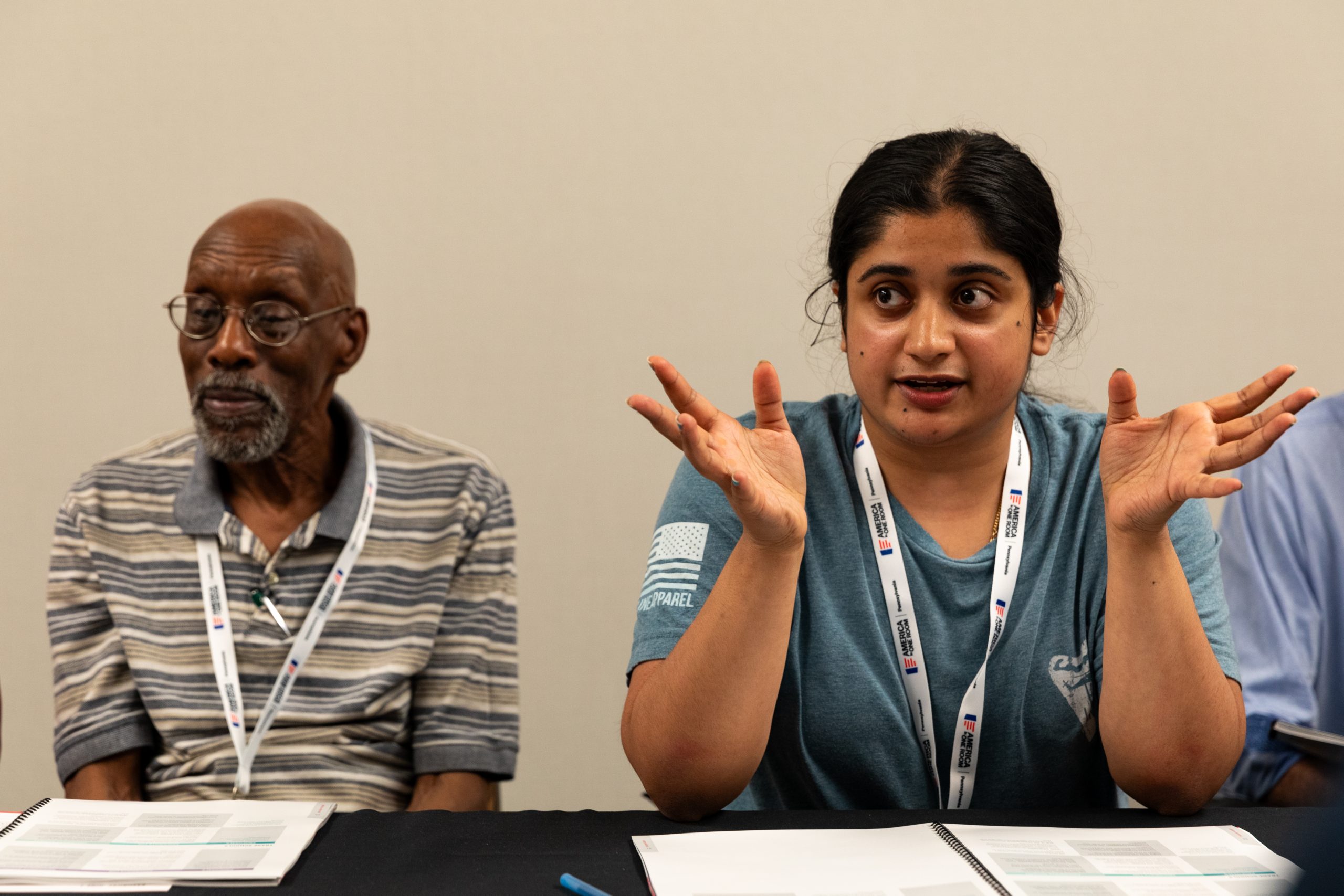
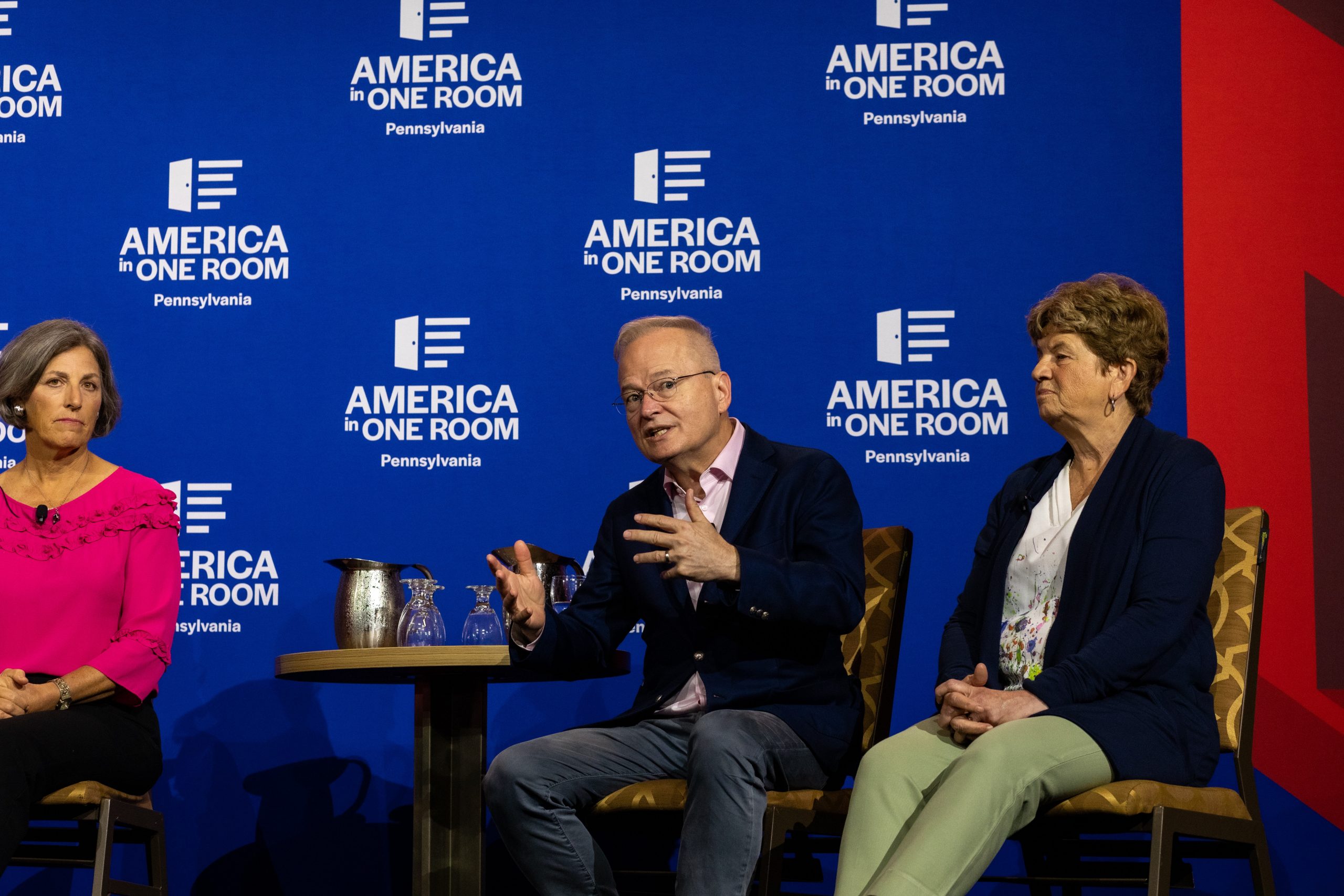
The results challenged the prevailing narrative that Americans are hopelessly divided and offered a clear and actionable understanding of public opinion on policy proposals of state and national significance. From voting reform to immigration to education to healthcare to foreign policy, our participants tackled nuanced policy proposals and moved in surprising directions when compared to the control group.
One month before Trump’s “Big, Beautiful Bill” H.R.1. was signed into law, A1R: PA reflected constituent perspectives on many of the issues congress would soon debate, revealing which provisions aligned with public sentiment and which lacked consensus when stripped of partisan framing.
Participants left with dramatically renewed faith in democracy and an expanded willingness to engage with the other side.
A snapshot of American priorities
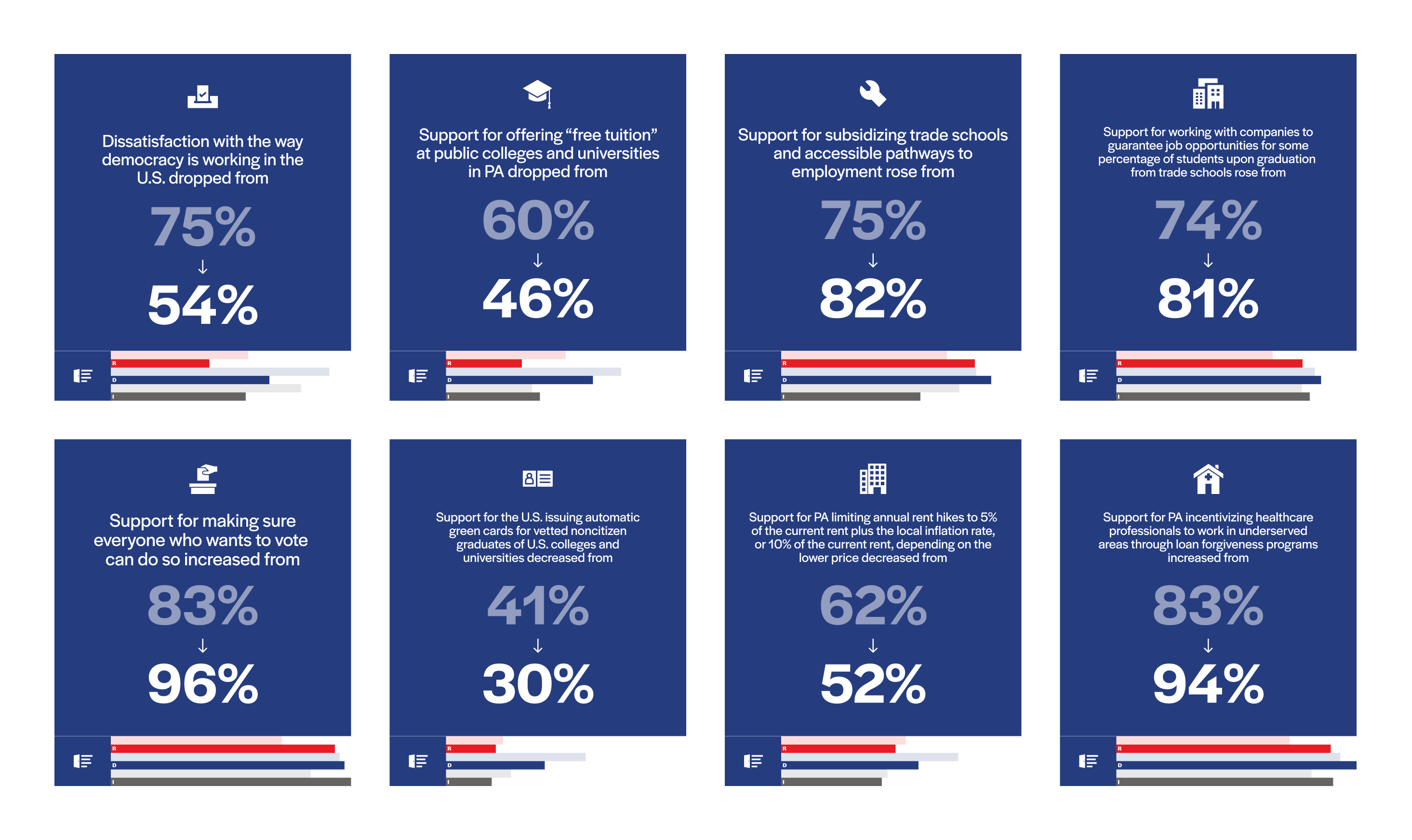
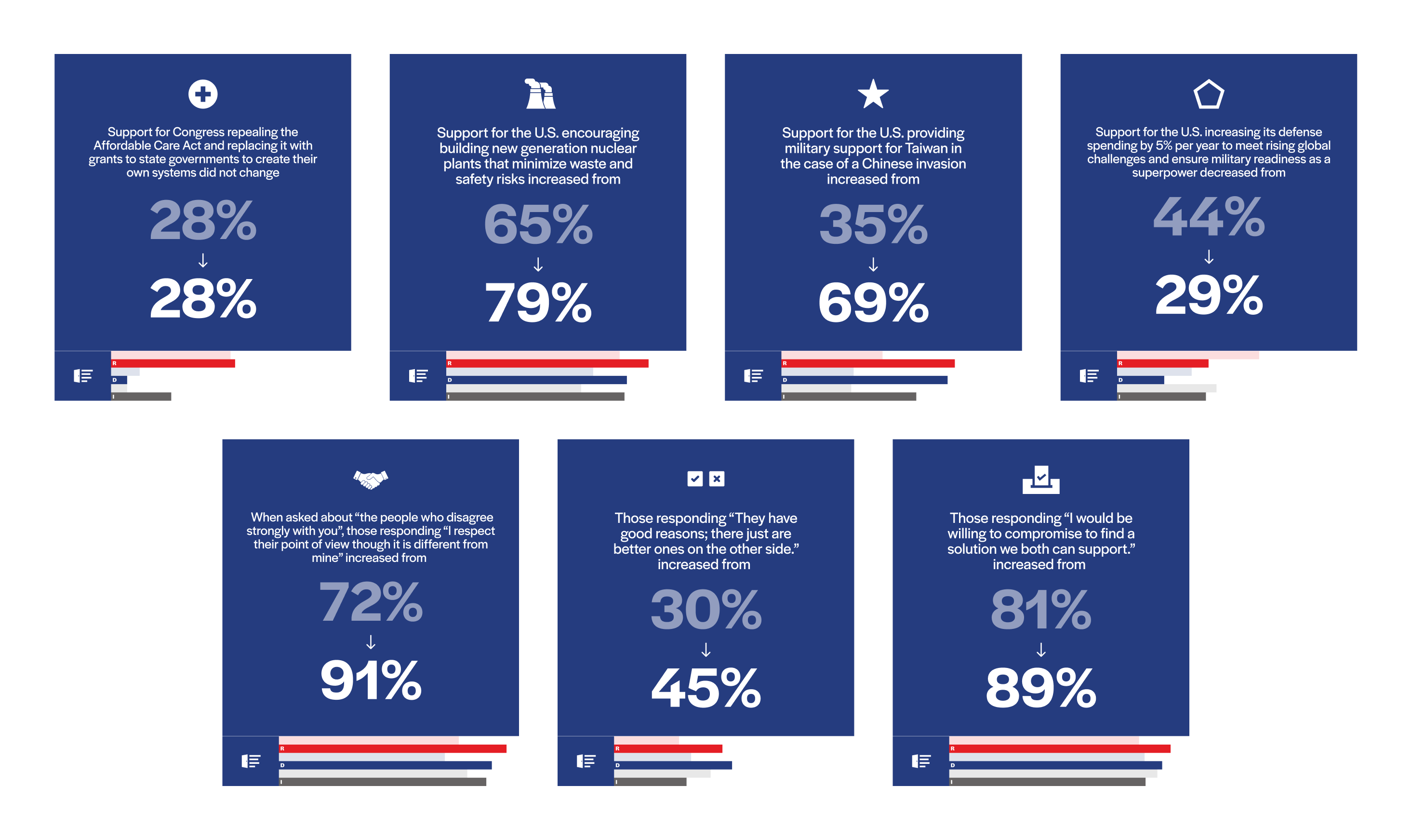
Education
Strong bipartisan consensus emerged supporting tuition caps at public colleges and universities (77% support), while support for free college tuition significantly dropped from 60% to 46%, as participants considered budgetary realities. In addition, deliberations led to substantial bipartisan support (approximately 81%) for policies subsidizing trade education and guaranteeing job opportunities for graduates, reflecting widespread recognition of vocational education’s economic benefits.
Healthcare
Participants demonstrated strong bipartisan support for policies addressing healthcare disparities in underserved areas. They expressed overwhelming approval for initiatives such as tax credits for healthcare facilities expanding into rural areas (88% support), loan forgiveness incentives for healthcare workers serving these communities (94% support), and grants for rural hospitals to hire and retain medical staff (85% support). Conversely, proposals such as repealing the Affordable Care Act in favor of state grants or requiring work hours for Medicaid recipients received far less enthusiasm, reflecting concerns about effectiveness, administrative complexity, and unintended consequences.
Economic Opportunity
Discussions about economic opportunity revealed clear bipartisan agreement on practical workforce policies. Substantial support emerged for subsidizing trade schools and creating guaranteed job opportunities upon graduation (around 81% support). However, more ambitious measures like “baby bonds” (state-funded bonds for children) lost support when participants considered long-term fiscal impacts, highlighting a preference for targeted, directly impactful initiatives over broader wealth redistribution programs.
Foreign Policy
Foreign policy deliberations showed a dramatic shift towards robust, pragmatic international engagement. Support doubled (from 35% to 69%) for providing military support to Taiwan in case of a Chinese invasion, reflecting strong bipartisan agreement on the strategic importance of deterring aggression. Participants also strongly supported new-generation nuclear plants and creating a “Resilient Resource Reserve,” while notably rejecting increased defense spending. This demonstrated a preference for strategic readiness and diplomacy over broad military budget increases.
A historic policy commitment
Helena worked directly with legislators in Pennsylvania to ensure the findings from A1R: PA would meaningfully shape state policy.
The deliberative results will be integrated directly into legislative strategy through a partnership with Speaker of the PA House Joanna McClinton.
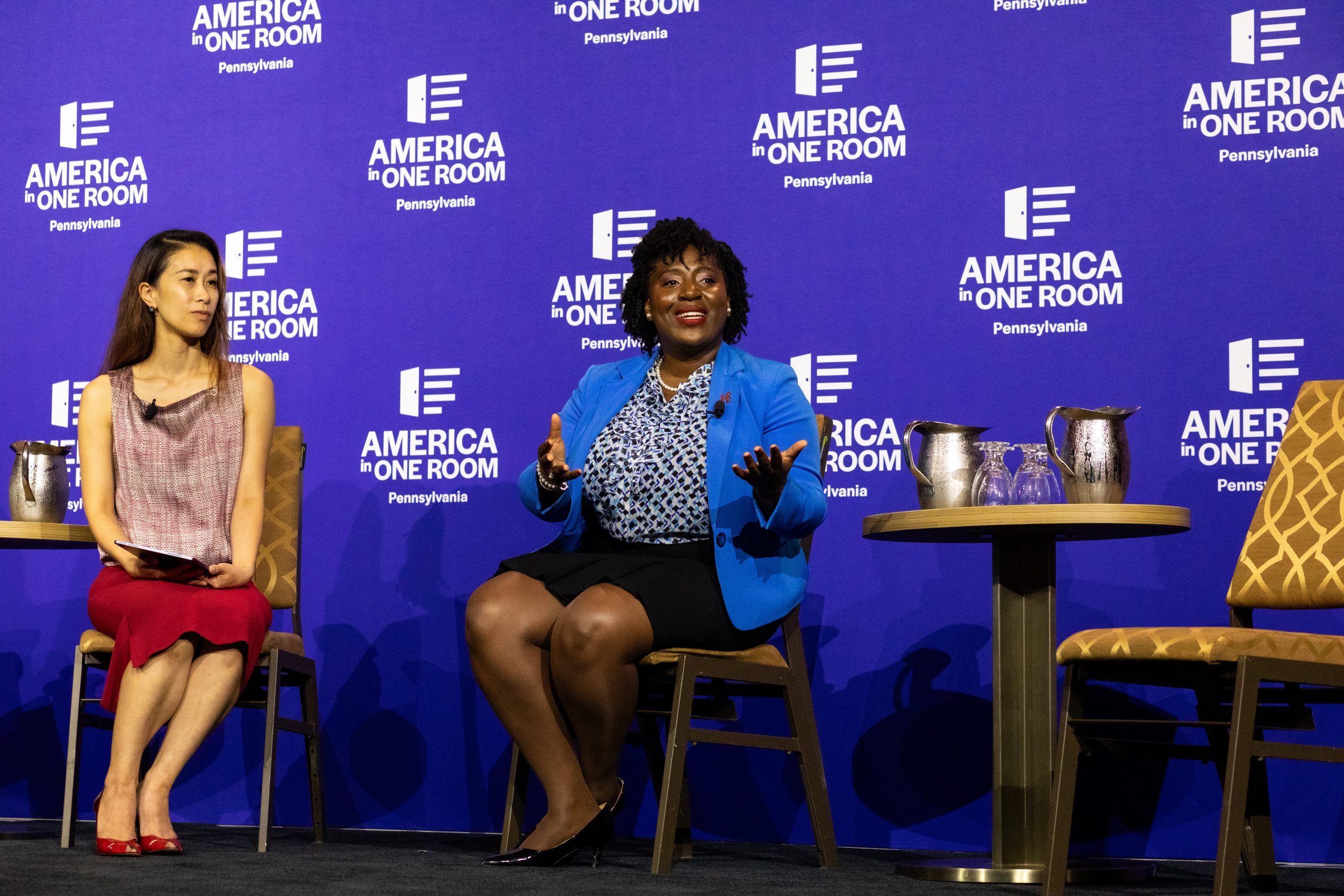
Recognizing the value of citizen-driven policy deliberations, the Speaker formally committed to using the A1R: PA outcomes to inform reconciliation of House Bill 1396, a significant election reform package.
Five key policy proposals deliberated during A1R: PA aligned directly with provisions of HB 1396:
- Conducting Random Ballot Audits
- Criminal Penalties for Misleading Voters
- Implementing In-Person Early Voting
- Requiring Photo Identification for Voting
- Installing Video Monitors at Ballot Dropboxes
Speaker McClinton’s office agreed to prioritize elements receiving supermajority support (67% or greater) from participants, while deprioritizing provisions facing supermajority opposition. Beyond quantitative survey data, the Speaker’s team also committed to reviewing qualitative insights, including anonymized participant quotes and synthesized reasoning from small-group discussions, to inform internal strategy and external negotiations with Senate leadership.
This explicit alignment between citizen deliberation and legislative action reflects a powerful new model for policymaking—one rooted deeply in rigorous, representative public input.
A functional tool for democratic resilience
America in One Room: Pennsylvania embodies a transformative new vision for governance—one in which citizens and elected officials collaborate directly to tackle the state’s most urgent challenges, driven by informed consensus rather than partisan gridlock. By harnessing the rigor of Deliberative Polling and expert insights, the initiative empowered Pennsylvanians to develop forward-looking solutions on critical issues ranging from education reform and economic opportunity to healthcare access and justice system improvements.
The practical integration of deliberative outcomes into the policy process by Speaker Joanna McClinton’s office represents a historic milestone, demonstrating deliberative democracy’s real-world potential to bridge divides, strengthen civic trust, and transform policymaking. Amplified by extensive national media coverage, America in One Room: Pennsylvania offers a compelling, scalable blueprint for democratic renewal. It highlights how structured, informed deliberation can effectively channel the diverse perspectives of the electorate into tangible, actionable solutions — charting a path toward a more vibrant, inclusive, and resilient democratic future for communities across Pennsylvania and beyond.
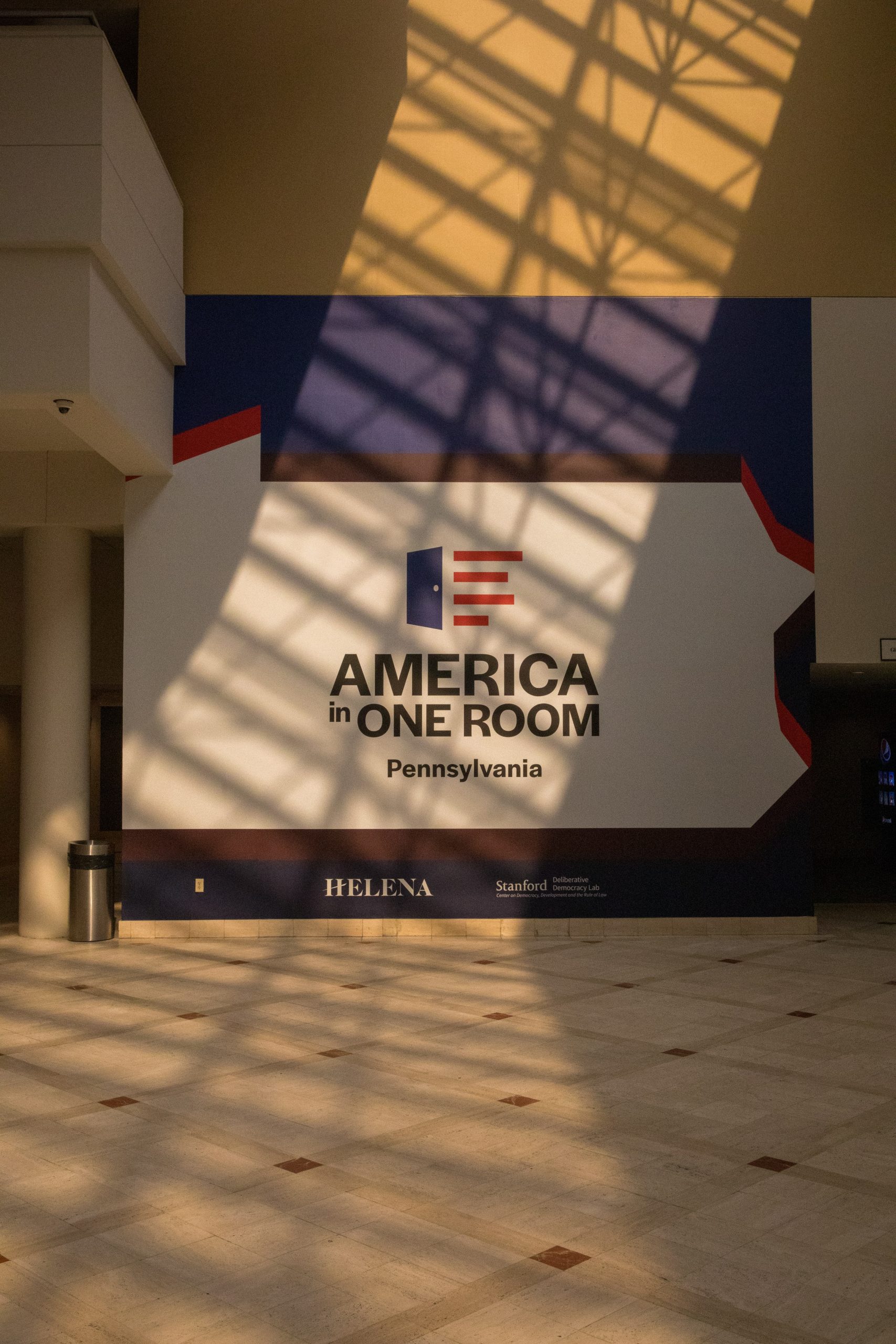
Helena’s purpose is to identify solutions to global problems and implement them through projects. Each project is a separate, unique effort.
Sometimes, we believe that the most effective method to implement a project is through non-profit action. These projects are designated as “non-profit” on their associated project pages on this website. This page is an example of such a project.
In these cases, Helena operates projects that are led and funded through non-profit entitie(s), including Helena Group Foundation. Helena Group Foundation is a nonprofit, 501(c)(3) organization formed to conceive and operate projects that solve important global issues for the benefit of society.